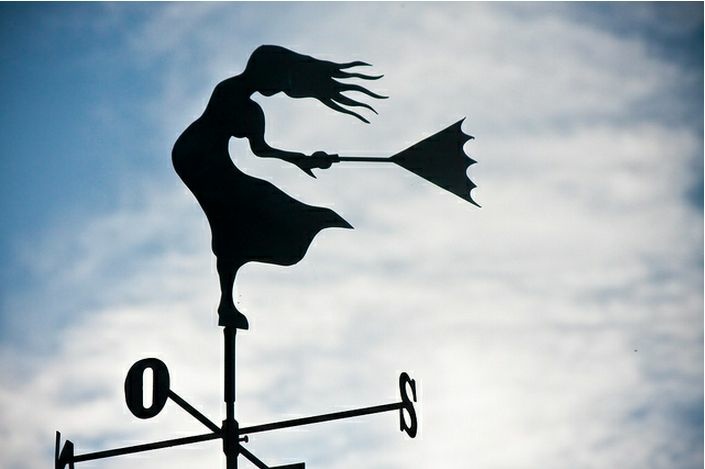Hi. I'm Harry Widdifield. I've written both
as myself and as Sevastian Winters. I don't often do guest posts like this
anymore, but on a whim, I decided to put this out there. Maybe you'll see some
value in it.
When asking me to do this post, Scott asked me to consider the answers to two
questions:
- What is the best thing I've ever done as a writer?
- What is the worst thing I've ever done as a writer?
These are both excellent questions, and
interestingly enough, it took me about 2.5 seconds to know the answers to both.
The best:
In 1996, I had an idea for a short story about a serial
killer who won “the game.” I've always thought of serial killing as a game more
than a crime, and figure that we would solve more of them more quickly if
police saw it as a game as well. Anyhow, I'd never written anything just for
fun before, and so just for fun I wrote it.
Nine years later, after 16 years as an entrepreneur and
marketing professional, I had some time
off from my four years as a corporate CEO, and thought perhaps I would turn
that old story into a novel.
Before I started writing, I set out to read the classics,
thinking that if I did, perhaps I'd learn enough about writing to give ol'
Steve King a run for his money. (I call him Steve. He doesn't even know I exist.)
When I finished Moby Dick, I figured I had the answer — the building
blocks I needed to write my novel. And I asked myself this question: What if
the whale was, after all, a cognizant beast, still driven by instinct, but
wholly diabolical and completely human? From that thought, My Eyes Face
Forward, a book I've never published, was born.

For the next three months I toiled night and day,
perfecting my masterpiece, like a blind man painting by number, fully expectant
that the Mona Lisa was revealing herself and the secret behind her smile. (I said I'm not an expert. I didn't say I'm
not arrogant. I was even more so then, for I had not yet learned how little I
know.) I punctuated my final sentence and rushed my work off to an agent,
expecting the million dollar offers to roll in. (Sound familiar? Anyone?)
I quickly found (or thought I'd found) that agents don't
know the first thing about good writing, and that they are a rather snotty
bunch. But one woman in New York, who has likely forgotten my name, (though I
shall never forget hers), Toni Lopopolo, took pity on me. She told me to learn
my craft, and she listed the titles of some books I should read:
- Stein on Writing by Sol Stein
- Self-Editing for Fiction
Writers by Renni Browne and Dave King
- How to Write a Damn Good
Novel by James N. Frey
Lopopolo (which is a lot more fun to say than “Toni”) told
me that those three books were the Holy Bibles of fiction writing and that I
should read them and then (my eyes about popped out of my skull on this one)
that I should “rewrite” my book! (The nerve of some people. She apparently
hadn't gotten the memo about me being a golden god!)
Having been a businessman for a number of years, I surmised
that since Lopopolo worked with the big houses in New York, that she was just
checking me to see if I could take marching orders. After all, they don't write
million-dollar cheques to just anyone! I decided I would play her little
game. I would read her little books, make a few edits, and re-submit my work.
I started with Stein on Writing. When I finished
reading, I was so astounded by what I'd read, that I immediately read it again,
before proceeding on with Self-Editing for Fiction Writers and How to
Write a Damn Good Novel. When I finished that, I bought more books on
writing craft and then more again. Along the way, I stumbled across a few
scriptures of my own, such as Story, by Robert McKee (a Bible for screen
writers) Bird by Bird by Anne LaMott and Stephen King On Writing (which
was more Apocrypha than Bible, but still valuable) and one that made a huge
impact on me despite its tedium, (It's very technical) Techniques of the
Selling Writer, by Dwight Swain. (Buy them. Read them, Read them again, and
then again. Repeat.)
I read books on writing until after a time, they all
started to say exactly the same things. It was then that I sat down at my desk,
once again, for the purpose of “polishing” my opus. But…
 ...A funny thing had happened while I was reading. (Perhaps
you have experienced the same thing.) At some point between the time that I
punctuated the final sentence of my memo draft on how I'd just “finished” a
manuscript and was ready to be heralded onto the world literary stage as a
golden god, and the time that I finished reading my first of many stacks of
books on writing, little gnomes had invaded my opus, and turned it into a great
big, heaping, stinking, embarrassing pile of dung! It was then that I made the
choice to truly check my ego at the door and to instead dedicate myself to a
lifelong pursuit of learning my craft. More succinctly, the best thing I've
ever done as a writer was to dedicate myself to learning my craft. Any writer
who doesn't, is just a hack (and that's a fact).
...A funny thing had happened while I was reading. (Perhaps
you have experienced the same thing.) At some point between the time that I
punctuated the final sentence of my memo draft on how I'd just “finished” a
manuscript and was ready to be heralded onto the world literary stage as a
golden god, and the time that I finished reading my first of many stacks of
books on writing, little gnomes had invaded my opus, and turned it into a great
big, heaping, stinking, embarrassing pile of dung! It was then that I made the
choice to truly check my ego at the door and to instead dedicate myself to a
lifelong pursuit of learning my craft. More succinctly, the best thing I've
ever done as a writer was to dedicate myself to learning my craft. Any writer
who doesn't, is just a hack (and that's a fact).
The worst
The worst mistake I've ever made as a writer was to
befriend more writers than readers.
Befriending writers rather than readers is a bad choice on several
fronts: writers are assholes. Writers aren't readers. Writers have no vested
interest in helping each other. Very few writers learn their craft well enough
to teach it. Writers are more prone to literary circle-jerks than they are to
actually writing.
Writers are assholes
— myself included. In fact, I'm as adept at being an asshole as I am at
writing. Ask around. I have a pretty solid reputation on both fronts. It sort
of takes an asshole to think that the things you have to say are worth charging
money for. If you're a writer, you're probably an asshole too — at least if
you're any good. Own it.
Despite what you've heard, most writers aren't readers to
any real degree. I, for example, can't get past the first chapter of most books
I pick up, because most of them are crap. And while there are some amongst us
who can't put a book down even when it's crap, for the most part, we writers
are more interested in what we have to offer than in what others have to offer.
So we're not readers. We're writers.
Writers have no vested interest in helping other writers
succeed. Forget what you've heard about camaraderie. Writing is a solitary
profession with solitary benefits. We're not all sharing a pie. We all want the
entire pie. There's no real value in banding together and doing so is just
wasted time and effort that takes away from our singular purpose: writing.
Have you ever watched the contestants trying to build a
shelter on “Survivor?” I'm pretty sure they don't select contestants with any
experience in basic carpentry. As such, their shelters suck. I'm a journeyman
carpenter, so I just shake my head. Writers are much the same. Most writers
have never so much as purchased, much less read a book on writing, and yet they
all consider themselves knowledgeable on writing. I've actually had someone say
to me “My uncle published six books so I ought to know!” My uncle runs dispatch
for a trucking company.
 |
| Wikimedia Commons |
Does that make me a Peterbilt mechanic? Writers get
into groups and spend countless hours arguing the merits of their positions on
various aspects of writing none of them having the slightest fucking clue what
they are talking about. It truly is the blind leading the blind.
The only thing worse than writers fighting with each other
over the finer points of writing is writers praising each other for each
others' work in literary circle jerks. I've been kicked out of every writing
group I've ever been a part of, including some I've started. Reason? If a
writer asks for feedback on their work, I tell them the truth.
Oscar Wilde once said:
“If you want to tell people the
truth, you'd better make them laugh. Otherwise, they'll kill you.”
_in_New_York,_1882._Picture_by_Napoleon_Sarony_(1821-1896)_2.jpg) |
| Wikimedia Commons |
That's about
right.
Writing groups tend to be about writers looking for
accolades rather than criticism. Guess what? Your ability to string words
together into a coherent sentence or set of sentences than form paragraphs,
chapters, and books, does not rank my praise. I've never learned anything from
anyone who told me what a great writer I am. Learning happens when we come to
terms with the fact that we don't fucking know everything and that sometimes
our very best work is nothing but a heaping pile of dung! (See how I did that?
I've lead you right back to the beginning, where I chose to dedicate myself to
craft because prior to that my very best work was crap.)
In short, the worst thing I've ever done as a writer was to
befriend a whole bunch of writers instead of a whole bunch of readers. If you
want to be a writer, do two things:
- Learn your craft
- Steer clear of other writers.
If you follow those two rules, you'll probably do just
fine.
See? I told you I'm an asshole.
Author Harry Widdifield enjoys writing both fiction and non-fiction. A self-proclaimed "Teller of Ten Minute Tales," Widdifield loves telling action-packed tales to readers who often don't have more than 10 minutes in a day to read. Widdifield writes novels and self-help non-fiction as well as satirical non-fiction, but his true passion is tales that can be fully enjoyed in ten minutes and then digested for a lifetime. Bon apetit!












_in_New_York,_1882._Picture_by_Napoleon_Sarony_(1821-1896)_2.jpg)

















